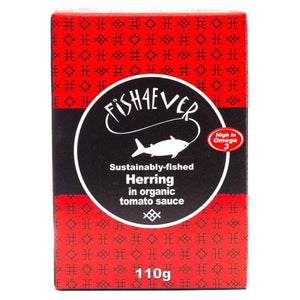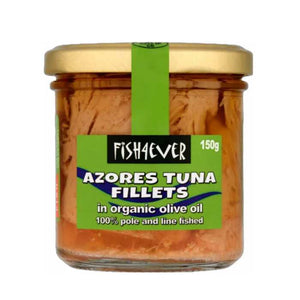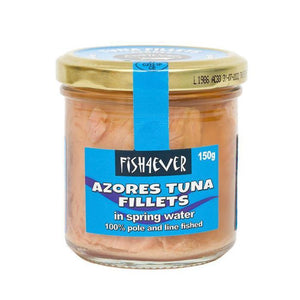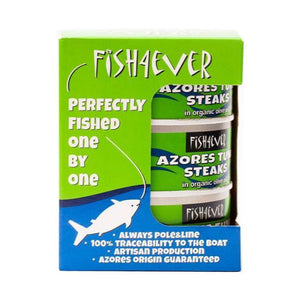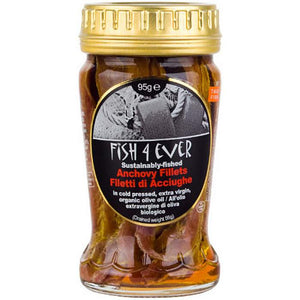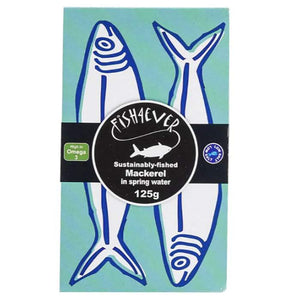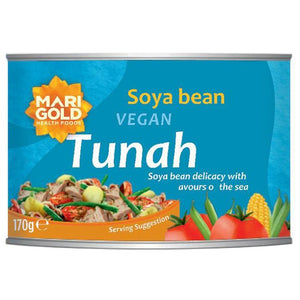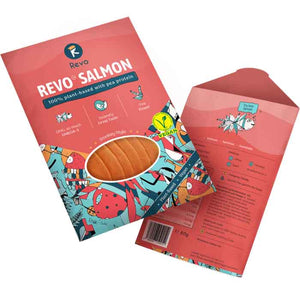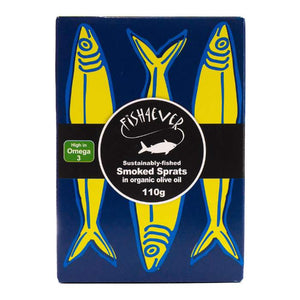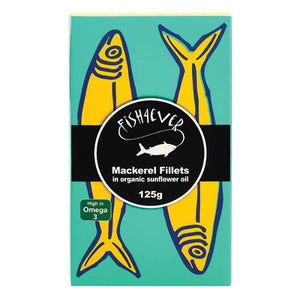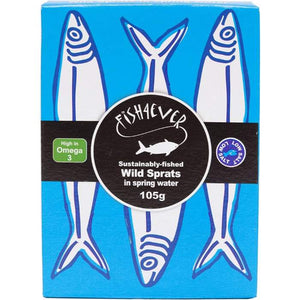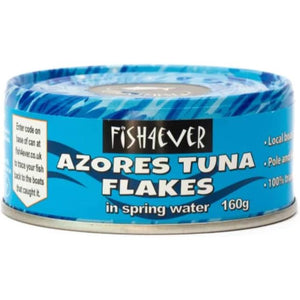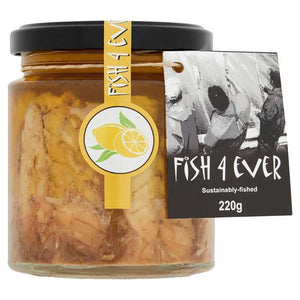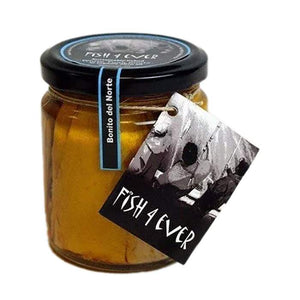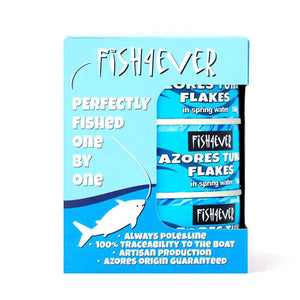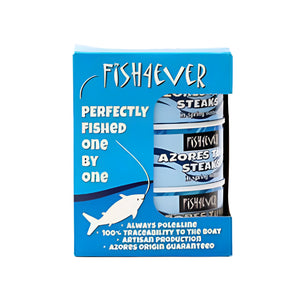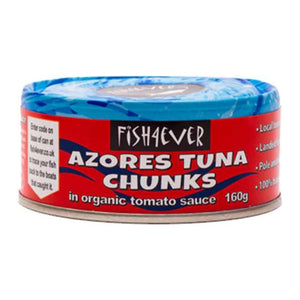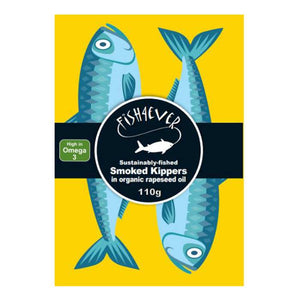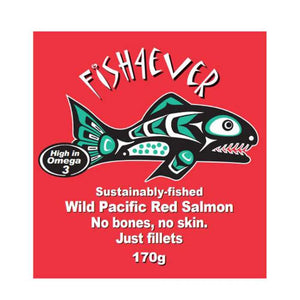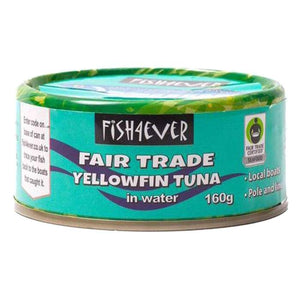Plant-Based Seafood
Miss the taste of the sea? Find yourself fighting the cravings for a tuna sandwich or a homely plate of fish fingers and peas? Well, no need. The last few years have seen an exponential rise in seafood in the UK, with brands pushing the boat out (sorry, it had to be done) to develop exciting fishy alternatives and inventive seafood for vegans.
We will explore some of the most popular types of plant-based seafood that have stormed onto the scene and the plethora of choices for buying seafood. Read more
Sort By ×
- Featured
- Price, low to high
- Price, high to low
- Alphabetically, A-Z
- Alphabetically, Z-A
- Date, old to new
- Date, new to old
- Best Selling
Types of seafood
Freezer-friendly plant-based seafood
We all crave a fish finger sandwich from time to time when we fancy a hit of nostalgia from childhood, and fortunately, this is still a possibility in today’s -friendly world! Ok, we’re going to level with you. When we say freezer-friendly plant-based seafood, we basically mean the breaded stuff. We’re talking fish fingers, plant-based battered fish alternatives, fish-free fish cakes and 100% plant scampi.
We mean anything that screams home comfort food, that only requires a carefree tossing into the oven, and that goes well with chips. Truth is, breaded seafood is a really easy thing to be able to imitate with plant-based ingredients, and let’s be honest, it’s generally completely delicious and makes us feel like kids again. Comfort seafood at its best!
A good option here is Moving Mountains - Plant-Based Fingers, which are made with soya and therefore a brilliant source of protein, vitamin C, and folate. Crunchy on the outside and tender within, these fish fingers make the perfect TV dinner.
These VBites Plant-Based Fish Steaks also hit the spot when it comes to frozen seafood. A twist on standard-issue fish steak, these fish steaks are made with succulent flaky fish and then covered with a crispy, naturally flavoured breadcrumb coating.
Tinned seafood for
Another type of plant-based seafood you’ll see on the market is tinned seafood. Usually, it will take the form of a tuna alternative, such as this Loma Linda - Tuno Thai Sweet Chili which is made from a plant-based protein, or Marigold’s classic Tunah In Oil which is made using soybeans. Both options are tasty and make wonderful alternatives to regular seafood that kill precious tuna fish.
Why not whip up a quick lunchtime tuna mayo pasta salad, sandwich, or a comforting tuna-free pasta bake!
salmon
Salty, a little sweet, and very versatile; salmon is a definitive favourite of the fish-eating population. So, it only makes sense that brands have had a stab at salmon alternatives. You can now find salmon in lots of major supermarkets and health food shops, hooray!
Check out this smoked Vbites - Smoked Salmon Style Slices if you’re hankering after some salmon and cream cheese blennies, a creamy fish-free smoked salmon pasta dish, or a decadent addition to your weekend scrambled tofu breakfast.
Frequently asked questions
What ingredients make good seafood alternatives?
If you’re not so much into processed seafood alternatives, you might want to consider natural ingredients to simulate that yummy seafood texture. You’re in luck, as there are plenty of options out there for you! Jackfruit, seitan, and banana blossom are just a few of the natural whole ingredients you can manipulate to realise your plant-based seafood dreams.
Biona does an excellent Organic Banana Blossom In Brine which, due to its soft and flaky texture, can stand in for seafood in a huge variety of dishes. Rich in fibre, calcium and potassium, banana blossom absorbs flavour well and makes for great seafood. Try adding to zesty fish-free curries, shallow fried as fish fritters, or marinated in tamarind and spices for a fragrant Pad Thai.
If you’re wanting to create a seafood dish based on clams, mussels or oysters, you may want to experiment with good-quality king oyster mushrooms to produce a similar kind of texture. With succulent flesh and a deep umami flavour, oyster mushrooms are a brilliant form of seafood for .
How can I recreate a seafood taste?
Seaweed! In short, seaweed is the answer to our prayers. Not only is it absolutely rammed with precious minerals and vitamins such as zinc, iodine, antioxidants, and vitamins A, K and B, but it also provides that fantastic sea-blast flavour that is hard to otherwise replicate.
You will find that many seafood products have a cheeky slice of seaweed tucked in there to give the food a salty, umami, fresh-sea flavour. You can buy fresh or dry seaweed, seaweed-flavoured condiments, and even seaweed pasta!
Is eating seafood bad for the environment?
Increasing scientific evidence has pointed toward the dangers of ‘Aquaculture’ for the environment. Lots of nature has been destroyed to make room for Aquaculture farms, which has a damaging knock-on effect on the remaining biodiversity. Many critics of Aquaculture point out that it’s an industry that puts profit over care for the environment.
Lots of don’t eat seafood because Sealife is well, alive. But many also abstain from eating Sealife because of the significant environmental impacts of the industry.
How can I get nutrients contained in seafood from a diet?
It’s undeniable: fish and seafood are excellent sources of minerals and beneficial compounds for your body. Still, luckily you can get these same nutrients from plant-based foods, so no need to stray to the dark side.
Seafood and fish are rich in protein, omega-3 fatty acids, iron, and vitamin B12. Here are some suggestions of sources of these vitamins and minerals:
Omega-3 fatty acids can be found in algae, seaweed, many types of nuts, flaxseed, chia seeds, beans and canola oil.
Protein is best found in tofu, other soy products such as tempeh and seitan, pulses, legumes, seeds and nuts, and vegetables such as broccoli, spinach, asparagus and brussel sprouts.
Iron can be found in fortified cereals, dark leafy greens like kale and spinach, seeds, pulses, dried fruit, and tofu.
Vitamin B12 is often in fortified plant milk, soy, yeast extract, nutritional yeast and seaweed. Remember, you can also take Vitamin B12 in the form of supplements.
Does seafood contain artificial flavourings and additives?
Like anything else, there are some seafood products that contain artificial flavourings and additives, and also many organic seafood options that don’t. If you’re avoiding artificial ingredients, make sure to check the label. Plenty of the seafood options on the PlantX website are free from artificial ingredients, such as this Marigold - Tunah In Oil which contains only soybean protein, wheat, onion, safflower oil, sugar, sea salt, and paprika.
